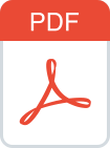Content

Kashoo is cloud accounting software for small business owners who want the simplicity of doing their own books. The simple, straightforward platform allows users to easily create invoices, manage expenses, generate reports, accept credit card payments through Square and more. Cloud accounting eliminates the need for on-premises servers and software, reducing hardware and maintenance costs. Additionally, cloud accounting platforms typically offer pay-as-you-go pricing, which means businesses only pay for the services they use. This pricing model allows businesses to scale their accounting needs as their business grows.
- In the software as a service (SaaS) model, users gain access to application software and databases.
- Also referred to as ‘hosted software’ or ‘on-demand software’, SaaS makes it easy for enterprises to streamline their maintenance and support.
- Plus, you’ll be able to reduce time spent on tedious accounting activities like balancing the books or physically depositing checks.
- Finally, find accounting software that integrates seamlessly with other business software.
- There are four basic areas you should consider when choosing a cloud accounting software solution.
- Cloud accounting is a similar concept where you manage all of your accounting tasks but that software is run through remote servers.
- Accounting software is a key component of an enterprise resource planning (ERP) system.
- Before computers, accountants and bookkeepers used paper logs to track expenses and income and manage customer records.
- While cloud-based software does have advantages, these are more on the development side.
A survey of 150 small to medium-sized enterprises (SMEs) in Singapore by Xero in 2017 found that small business owners spend an average of 15.5 hours a month manually importing and reconciling their bank statements. Of these, more than two-thirds cited manual bank statement reconciliation as a key challenge in managing their operations. In a small business, though, accounting can easily take a backseat in favour of seemingly more urgent tasks such as sales and product development. After all, it takes a lot of time and patience to carry out administrative tasks, such as recording expenses and preparing invoices.
Infrastructure as a service (IaaS)
Accounting is one of the most important aspects of any business, so it’s very obvious that a business owner should be on the lookout for tools that will help him manage this aspect. Also, if you’re to do it manually, then cloud accounting meaning you can also do that using remote servers. With cloud computing, you’re able to sneak into the world of cloud computing and let the accountant know about the exact requirements you may have regarding a particular project.

Cloud accounting software provides real-time updates to financial data, giving businesses a more accurate and up-to-date view of their finances. This improved visibility allows businesses to make more informed financial decisions, identify potential financial risks, and take proactive measures to mitigate those risks. PaaS doesn’t require users to manage the underlying infrastructure, i.e., the network, servers, operating systems, or storage, but gives them control over the deployed applications. This allows organizations to focus on the deployment and management of their applications by freeing them of the responsibility of software maintenance, planning, and resource procurement. In this type of service, a user purchases the resources from a vendor on a pay-as-you-go basis and can access them over a secure connection.
Other Useful Resources:
Accounting firms utilizing cloud computing can use the skill and assets of their cloud accomplices to guarantee that all information is thoroughly secured. Also, since all tasks are carried out online, it helps to cut down costs as you do not need to pay for an office to keep accounting equipment. Advancing from the traditional way of storing information, accounting firms have continually sought ways to improve the way information is being processed and stored. How to select a perfect accounting software- 8 tips
Top 10 Free accounting software for small business. Whit its “forever Free” plan you can sign in today and start managing your accounts without any payments.
As a result, numerous individuals can have access to the same information at the same time. Your firm can also reduce errors that happen when information is entered at different times. 66% of accountants feel their firms need to increase the pace of technology adoption to stay competitive. For instance, Microsoft diverted 90% of its $9.6 billion R&D budget to its cloud, in 2011. The trends appear to be growing as reports from Centaur Partners, announced towards the ending of 2015, had forecasted that SaaS revenue would spike from $13.5 billion as at 2011 to a whopping $32.8 billion in 2016.
How Cloud Accounting Benefits Association Managers
Sign up for applications that will work seamlessly with your primary business software. Virtual desktop infrastructure (VDI) lets you stream the desktop image remotely without coupling the desktop with the physical client device. An important use case for VDI is remote worker productivity, as applications and services can be easily deployed to a remote client without any complex installation or configuration. Instead of the user, a third-party vendor hosts the hardware, software, servers, storage, and other infrastructure components. A complete accounting system not only records financial transactions, it also includes reporting and analytics capabilities.
What is cloud financial?
FinOps is a cloud financial management practice that engages cross-functional teams in a collaborative effort to control cloud costs. Cloud operational management is often decentralized, and costs can be hard to predict or control.
The remote system also contains the software that lets you access, update and interact with your data. Traditional accounting methods may utilize lots of physical paper documents, files, and spreadsheets. Traditional accounting can also include software programs to manage finances on a computer.
A lot of Accounting software that is cloud accounting solutions have robust integration. With traditional accounting software, this diversity will be hard to achieve, because of its stagnant nature, but a cloud solution for your accounting needs will solve this problem. Since a cloud accounting software is designed to help you out with accounting https://www.bookstime.com/ estimates etc., it isn’t just about getting the numbers in. If you’re unsure about an accounting standard, or you’re skeptical about the application of a particular principle, then cloud accounting can serve as an expert as well. With little or no upfront cost and a modest monthly payment, you can better manage your startup and ongoing costs.
- When you stop using cloud accounting software, your data is typically retained for a specified period, as outlined in the provider’s terms and conditions.
- Digital transformation is the process of moving your company over to a digital model, usually with cloud at the heart of your systems.
- It allows one to extend either the capacity or the capability of a cloud service, by aggregation, integration or customization with another cloud service.
- In addition to accounting software, Zoho offers more than 40 enterprise-level online applications to grow sales, market your business, communicate with teammates, provide customer service and more.
- The digitisation of accounting has enabled the automation of tasks such as preparing invoices and recording these as accounts payable.
- All these depend on the rules one sets for the system, which in turn will be based on internal accounting processes, controls and compliance procedures.
- The leading cloud accounting tools all promote their industry leading security and regularly backup your data.The aspect of security cannot be stressed enough.
Cloud accounting not only gives you the mobility to conduct your accounting form anywhere it also is a time saver. Gone are the days when the accountants were the only ones around having a knowledge of how the financials of a firm works. Another huge benefit of cloud tools is that they are continually being updated and improved with little to no action required from you. Data that represents the current financial of the company, as opposed to historic actuals that show the past financial position.


